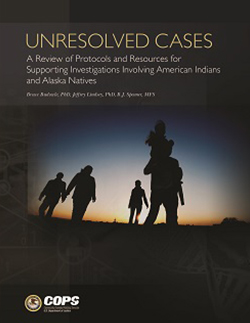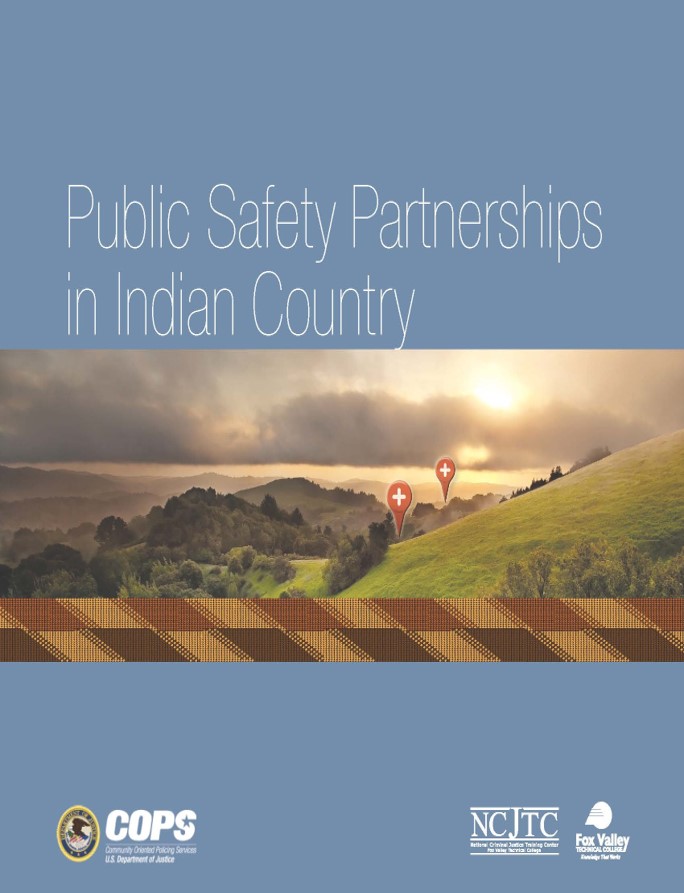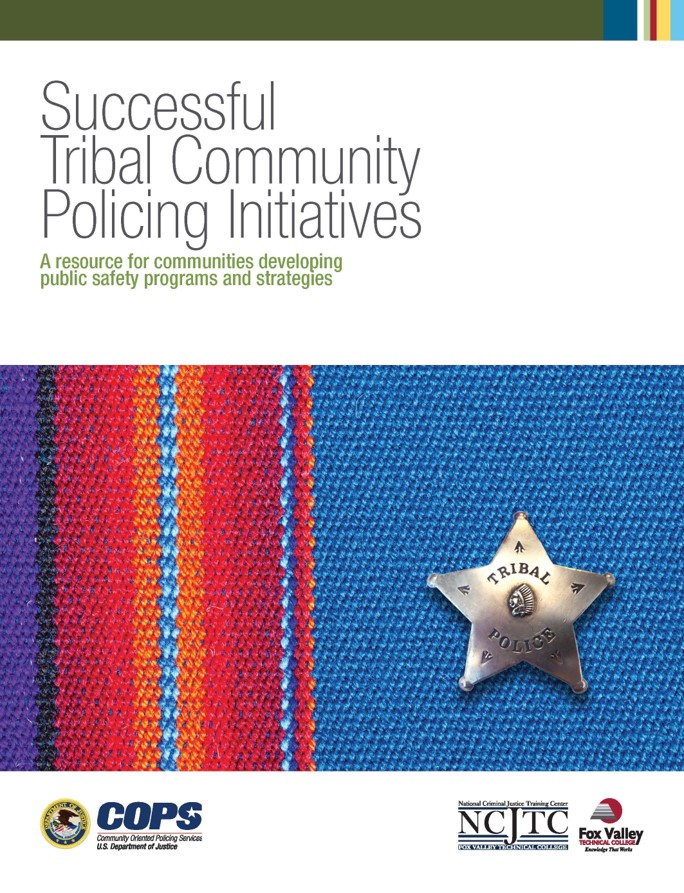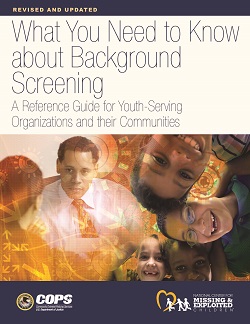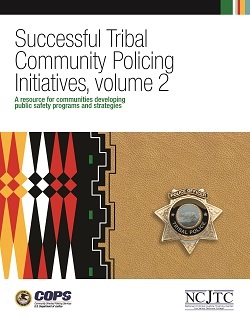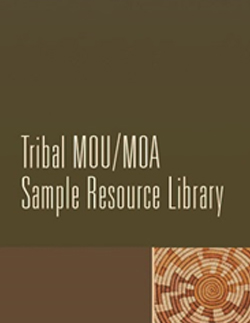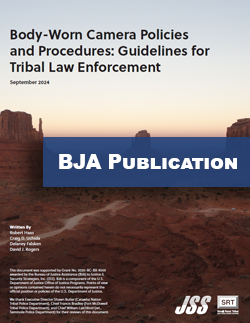The Office of Community Oriented Policing Services (COPS Office) provides resources and training and technical assistance (TTA) to further practical and specialized knowledge used to implement and enhance justice system efforts, particularly in the law enforcement field. The COPS Office supports resources and TTA that is not only specifically geared toward tribes but also generally applies across broader topic areas such as community policing, drugs, gangs, and youth safety, among others.
On this page you’ll find a variety of resources and courses the COPS Office offers for tribal law enforcement. These resources are constantly being updated and added to so please check back often.
TRIBAL ACCESS PROGRAM (TAP): CLOSED
The FY23 Tribal Access Program (TAP) was open and accepting applications from June 24, 2024, until August 30, 2024.
Tribal Resources Grant Program
Coordinated Tribal Assistance Solicitation
- Enables Tribes, Alaska Native villages, and Tribal consortia to submit a single application for eight of the Department of Justice’s competitive grant programs (additional information and helpful resources)
CTAS Purpose Area #1: Tribal Resources Grant Program
- Expands the implementation of community policing and meets the most serious needs of law enforcement in Tribal Nations
- Hire or re-hire career law enforcement officers and Village Public Safety Officers
- Procure basic equipment and training to assist in the initiation or enhancement of Tribal community policing efforts
DIRECTORY OF DEPARTMENT OF JUSTICE TRIBAL GRANTS
The Department of Justice created this directory of grant resources to support the President’s charge, in Executive Order 14053 (“Improving Public Safety and Criminal Justice for Native Americans and Addressing the Crisis of Missing or Murdered Indigenous People”), to make “grantmaking more equitable for Tribal applicants seeking support for law enforcement purposes and for the provision of services to victims and survivors.” Administered by the Office of Community Oriented Policing Services, the Office of Justice Programs, and the Office on Violence Against Women, the initiatives described below include discretionary and formula grant programs for which tribes are eligible. They support a range of effective criminal justice, prevention, intervention, reentry, and victim services activities. Funding opportunities can be found on grants.gov and are announced as they become available on the OJP, OVW, and COPS Office websites.
Tribal MOU/MOA
Sample Resource Library
This library is designed to provide users with the resources they need to research and successfully draft memorandums of understanding (MOU) and memorandums of agreement (MOA). MOUs and MOAs will help agencies develop and solidify partnerships to address missing or murdered Indigenous persons cases and provide a wide range of other related opportunities for collaboration.
Training and Technical Assistance
Effective Multi-Jurisdictional Collaboration in Missing or Murdered Indigenous Persons Cases
Course Provider: Western Community Policing Institute (WCPI)
Public Law 280 Training Program for Enhanced Collaborative Law Enforcement
Course Provider: Strategic Applications International
Volunteer Engagement for American Indian and Alaska Native Missing Person Cases
Course Provider: Collaborative Reform Initiative Technical Assistance Center
Dispatch Articles

Catawba Nation Hosts Multi–Law Enforcement Agency Training
November 2024
Thirty Years of Community Policing Support in Tribal Nations
November 2024
The BIA-BIE Youth Indian Police Academy: Inspiration and Mentorship for Service to their Community
August 2024
TAP and the Arrest, Booking, and Disposition Cycle
June 2024
Prosecuting Sex Trafficking Crimes in Indian Country
January 2024
The COPS Office’s FY23 Funding Grants Include Awards to 59 Tribal Nations
December 2023
Alaska Natives Develop a Grass Roots Solution to a Serious Crime Problem
November 2023
Accreditation for Tribal Law Enforcement: Voices from the Field
November 2023
A Tribal Police Peer Support Team
October 2023
Restoring Public Safety in the Catawba Nation
January 2023
The COPS Office’s FY22 Funding Grants Include Awards to 52 Tribal Nations
November 2022
Klamath Tribes Establish New Department to Reclaim Role in Public Safety
July 2022
Minnesota Anti-Heroin Task Force Places High Value on Partnerships with Tribal Law Enforcement
June 2019
Expanding Tribal Law Enforcement Power to Increase Public Safety in Alabama
May 2019
Raising Tipis and Solving Crimes: The Nez Perce Indian Youth Explorers’ Police Academy
March 2019
The Laguna Pueblo Public Safety Department: Proactive Approach to Trust-Building and Community Policing
November 2018
COPS Office Increases Tribal Access to Critical Crime Information with $1.5 Million in Support
November 2018
Meskwaki Nation Police Department and the CTAS Program
July 2018
The Tulalip Tribal Police Department Halloween in Tulalip: Pumpkins, Police, and Play
October 2017
Tribes can “TAP” into Critical Crime Data: COPS Funding in Action
June 2017
Tribal Oriented Policing Strategies (TOPS) is now available online!
April 2017
Tribal and Bureau of Indian Affairs Agencies Take the Community Policing Self-Assessment Tool
June 2016
Tribal Policing Partnerships: The Muckleshoot Tribe and the Sheriff
January 2013
What's New in Blue
What’s New in Blue is a series of short videos intended to keep viewers informed about innovative developments and critical issues in law enforcement.
Season 1 | Episode 4: What's New In Blue: Policing in Indian Country feat. Chief Francis Bradley Sr.
In this episode of What’s New in Blue, Chief Francis Bradley Sr. discusses the importance of culture in policing in Indian Country. Francis Bradley is the Chief of Police for the Hualapai Nation in Peach Springs, AZ. He is a graduate of the FBI National Academy Session 232 and retired as a commander with the Navajo Nation Police Department where he served from 1980 to 2002.
Background Investigations Overview and Considerations for Law Enforcement Personnel in Alaska Native Villages
Recorded: Thursday, March 12, 2020, at 10 A.M. Alaska Time / 2 P.M. ET
The Office of Community Oriented Policing Services (COPS Office) sponsored an overview webinar on background investigations to educate applicants and awardees about these types of investigations. The COPS Office requires awardees of the Tribal Resources Grant Program to conduct background investigations, as well as attend a basic law enforcement academy, for all positions hired under the program.
The key goals of this webinar were to:
- Describe what background investigations are
- Discuss the importance of conducting background investigations for law enforcement personnel
- Describe how background investigations can inform hiring decisions
- Provide possible methods for conducting background investigations
- Discuss basic law enforcement academy options in Alaska
- Answer questions about background investigations and the basic law enforcement academy
Moderator: Matthew Lysakowski, Senior Advisor for Tribal Affairs, COPS Office
Presenters: Fannie Black, Director of Programs, Yuut Elitnaurviat-People's Learning Center, Inc.; R.E. “Bob” Griffiths, Executive Director, Alaska Police Standards Council; David A. Willson, Sergeant, Alaska Department of Public Safety Recruitment Unit
What You Need to Know about Background Screening: A Reference Guide for Youth-Serving Organizations and their Communities
This guidebook, thoroughly updated in 2021 with new information and research, describes the layers of screening an agency should consider when developing a comprehensive background screening process and offers links to useful tools and resources to help youth-serving agencies understand the best screening practices that are available.
Podcasts - The Beat
 Talking Tribal Policing and De-escalation with Chief Jacob Molitor
Talking Tribal Policing and De-escalation with Chief Jacob Molitor
There are an estimated 18,000 state and local law enforcement agencies throughout the country, and while there are many similarities between jurisdictions, there are also many differences. Jacob Molitor, Chief of the Meskwaki Nation Police Department in Iowa and Chair of the Small and Rural Law Enforcement Executives Association, joins The Beat to discuss unique aspects of serving a small tribal jurisdiction. Chief Molitor also discusses an innovative approach that his department has implemented to institutionalize robust de-escalation practices.
June 2013
Tribal Community Policing
June 2013
Tribal Interoperability
March 2012
Developing Effective Partnerships
Mitakuye Oyasin (We Are All Related)
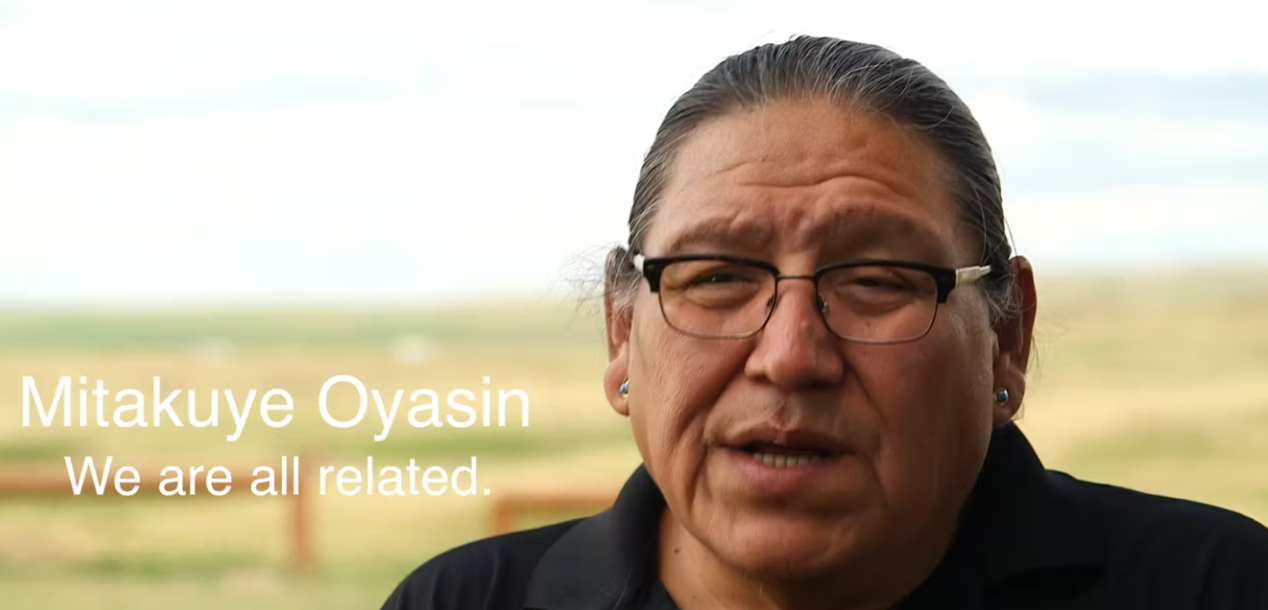 A film highlighting the hope of the Lakota people through Akicita and community policing.
A film highlighting the hope of the Lakota people through Akicita and community policing.
In addressing the challenges facing the Lakota people on the Pine Ridge Reservation in South Dakota, the Oglala Sioux Tribe embraces Akicita; a community-based approach to public safety that has been a part of the Lakota people for centuries. The Akicita are the guardians. Akicita is a shared responsibility among all community members. Akicita is community policing. For the Lakota people there is hope for the future in remembering the past.
Contact COPS Office
Thank you for your interest in the COPS Office. We are eager to answer any questions you may have and are very interested in hearing your thoughts on our work and on community policing in general. Please use the contact information here to get in touch with us. The Response Center can assist you with questions regarding our programs as well as connect you with our community policing experts and resources.
Response Center: 800-421-6770
The Response Center’s hours are Monday – Friday, 9 a.m. to 5 p.m. ET.
Email: tribalgrants@usdoj.gov
 Official websites use.gov
Official websites use.gov Secure .gov websites use HTTPS
Secure .gov websites use HTTPS 